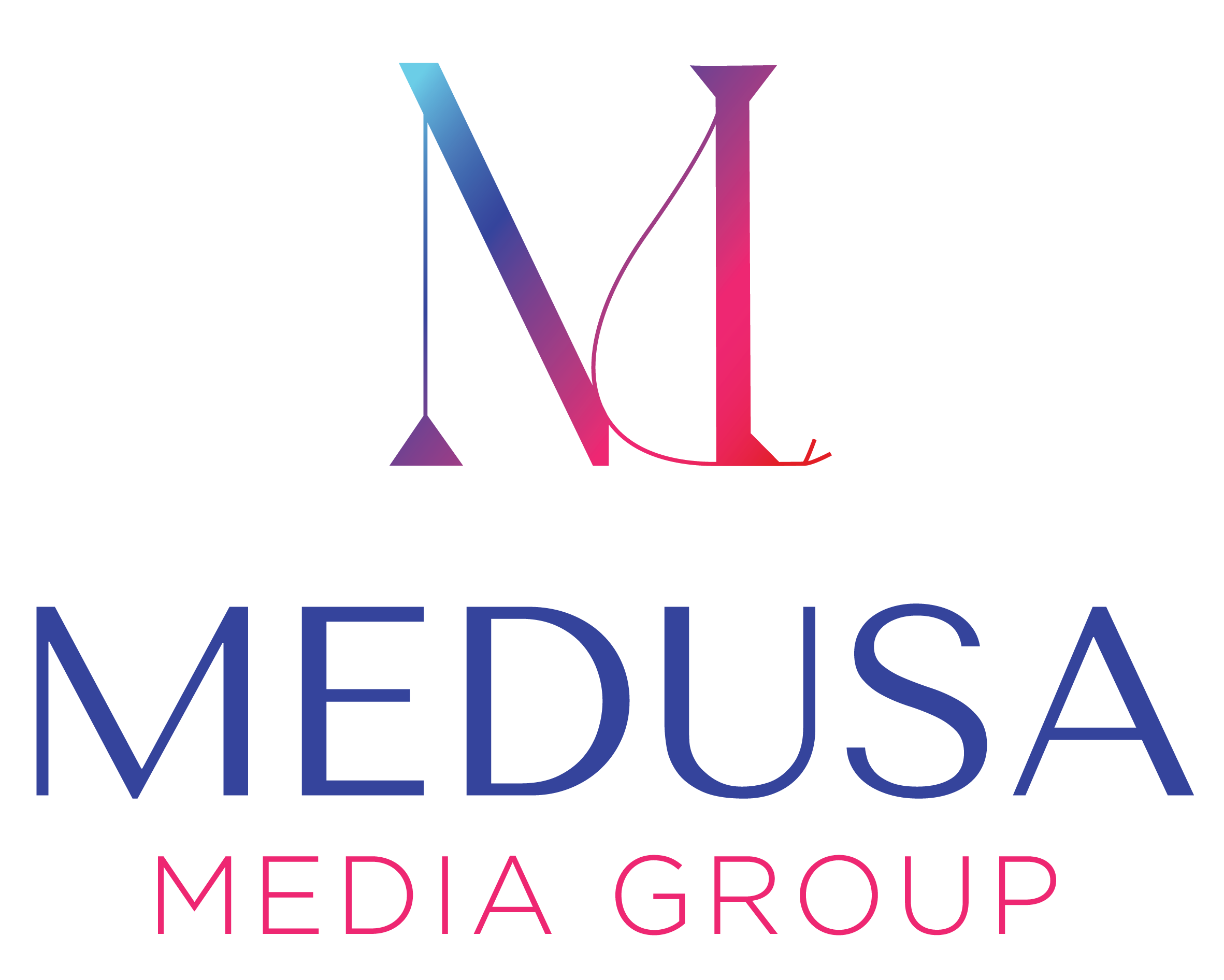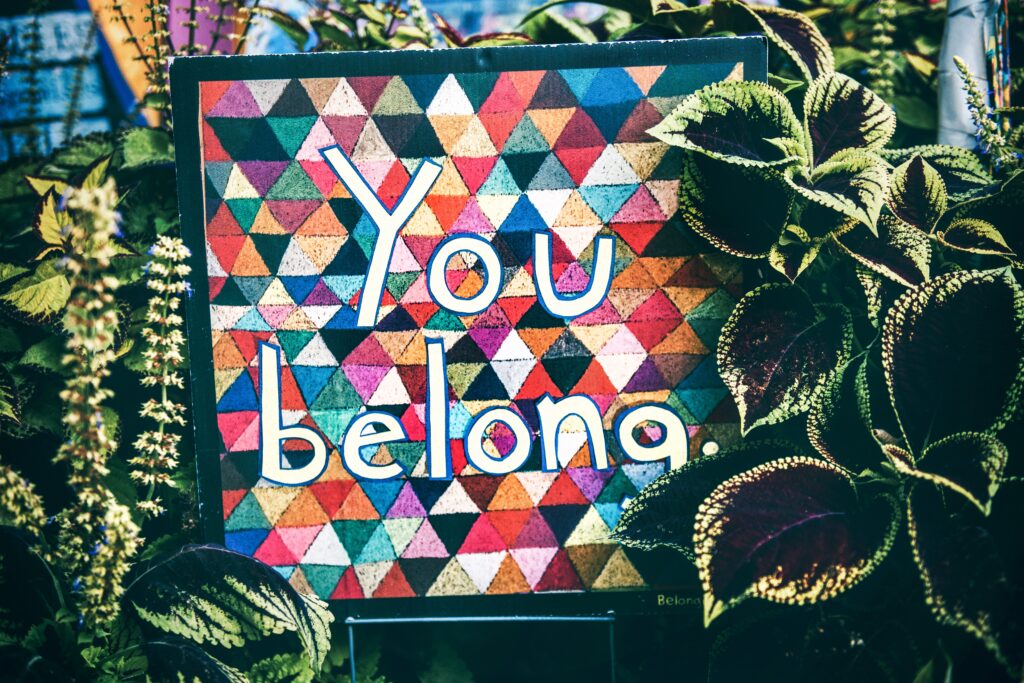I discovered equity pricing when I was selling cookies.
It was April 12th, 2011: Equal Pay Day in the United States. The Gender and Women’s Studies department at my university was hosting a “Pay Equity Bake Sale.”
Here’s how it worked: Our cookies and brownies cost $1. But if you identified as a woman, you paid less. You paid the cents-to-the-dollar that women of your race/ethnic group earned in the year prior, compared to every dollar a white man earned.
That is what “equity pricing” can look like. More than a decade later, Medusa Media Group uses an equity pricing model for the group programs that we offer to thought leaders. This article explains why.
What Does “Equity Pricing” Mean?
We’re in a moment in history where the playing field for women is the most level it’s ever been. Women have the tools, access, and opportunities to become sought-after leaders for our work, to steer our destinies in ways most of our foremothers could scarcely imagine.
Yes, the playing field is more level. But it’s not LEVEL.

Asian women do not have the same experience of bias and discrimination as Black women or white women. Lesbian women do not have the same experience of bias and discrimination as “straight” women. Transgender women do not have the same experience of bias and discrimination as cisgender women, and so forth.
Equity pricing materially and symbolically acknowledges that we play on an uneven field. With an equity pricing model, you pay less for a product or service if you’ve been historically marginalized because of your identities. The more historically marginalized identities you live with, the less you pay.
Where does Equity Pricing come from?
Equity pricing is based on intersectionality, a concept coined by Kimberlé Crenshaw in 1989. Intersectionality posits that our social identities impact our access to resources, life experiences, and ability to navigate the world.
If you have multiple historically underestimated identities – say you’re Latina, female, and Jewish – intersectionality makes the case that those identites operate together, compounding the bias and discrimination you may experience from each one. (If you’re someone with multiple underestimated identities, reading this is probably a duh moment for you!)
At the same time, some identities immunize you against bias and discrimination. White men don’t face bias or discrimination on the basis of their gender or racial identity. Women of color do.
(This is not to say that white men or anyone with privilege don’t suffer hardship or face challenges. But people with underestimated identities often experience hardship because of their identities. John Amaechi has an excellent, two-minute explanation – watch it!)
Most of our identities are a mix of privileged and underestimated. For example, you might be heterosexual and able-bodied (privileged identities) and a woman of color and Jewish (marginalized identities) at the same time.
It’s PAINFUL that human society is structured this way. It HURTS that we’re born into a world where some identities are considered “better” or “more valuable” than others. It sucks, but it’s true. So what can we do about it?
Equity Pricing: An Unusual (Bake sale) Experience
Let’s return to the Pay Equity Bake Sale. If you were holding a bake sale on Equal Pay Day 2022, your customers would pay for their brownies like this:
- White women would pay $0.83
- Asian, Native Hawaiian, and Pacific Islander women would pay $0.75
- Black women would pay $0.58
- Native American/Indigenous women would pay $0.50
- Latina women would pay $.049
- Please see my NOTE* below
On campus, the purpose of our bake sale was to raise awareness about the gender wage gap. But, to me, another important purpose was to provide experiences where historically marginalized identities facilitate access instead of hinder it.
TO BE CLEAR: no woman of any stripe needs to buy a cookie to know that her identities are an asset. ALL identities are intrinsically worthy. Nobody needs my or anyone’s permission to know they are unique, valuable and essential.
Yet, many women are exposed to discrimination and bias by the society and culture we live in because of their identities. It’s not right, but it’s true.
What is less common is for these same women to experience easier access to resources and opportunities because of their historically underestimated identities.
Now, back to the bake sale.
A Black woman saw our sign. She walked up to our table of baked goods and asked, “what do you mean, ‘pay equity bake sale’? How does it work?”
I explained, “depending on how you identify, you’ll pay the amount members of your racial group earn, on average, for every dollar earned by a white man.”
“Huh, “ she said. “I’ve never seen that before. I’ll take a brownie.”
Medusa Media Group Offers Equity Pricing Because:
- I want to provide an experience where your historically marginalized identities make it easier for you to access Medusa’s group programs.
- I believe in reparations and that it is right and fair that groups who have experienced oppression receive material recompense.
- It activates Medusa’s company values to materially and symbolically acknowledge the uneven playing field, and remind all clients that we’re dedicated to dismantling it.
Discover exactly how this works by watching our Equity Pricing video included in the application to join our Micro Marketing Method (Mx3) or Exponential Audience™ programs.
You might be wondering, but seriously. Does offering equity pricing even make THAT big of a difference?
It’s a good question. On the one hand, saving a few hundred bucks is saving a few hundred bucks! On the other hand, that savings is a miniscule drop in the bucket compared to the centuries of intergenerational oppression you’ve survived and inherited.
I think equity pricing makes a small but mighty difference, and not just on your bank account but on your psyche. I like that it’s unusual and memorable, AND I like that it states, in no uncertain terms, that we take social justice and equity seriously in our work.
Because here’s what I know:
When you enroll in one of our group programs, you’re entering a community that will never gaslight you or deny your experiences. That matters.
When you enter your credit card info to work with us, it’s more affordable because of your intersecting marginalized identities. That matters.
When you enter my Zoom room, you can be confident that the myriad of identities you bring to the table are welcome and applauded and that you are safe and seen, exactly the way you are.
That. Fucking. Matters.
Now. Wanna Work with Us?
We help women entrepreneurs defy the status quo, amplify our influence and expand our wealth and power through #SlowMarketing strategy and thought leadership production. The best place to start is hopping on the waitlist for the Micro Marketing Method (Mx3).
You can also join me (Eva, Medusa’s founder) at one of my popular Women Leaders’ Roundtables, where you can expand your network by connecting with me and three other inspiring women entrepreneurs. Please contact hellomedusamedia @ gmail . com to inquire.
FAQs
Coming soon!
*NOTE: these are flawed categories. Generalizing about any group is futile. For example, Business Insider shows a breakdown of the wage gap among different Asian women. You’ll also notice that white women don’t have their own Equal Pay Day. Rhonda Vonshay Sharpe has more on that. Finally, there’s no category for women of Middle Eastern descent. Many Muslim women have middle eastern ancestry, and those who wear hijab likely experience additional religious discrimination. And so on and so forth.
Image by Tim Mossholder and Beth Macdonald via Unsplash. I also acknowledge my colleague Chéla Breckon, who reignited my interest in equity pricing during a Roundtable conversation.






